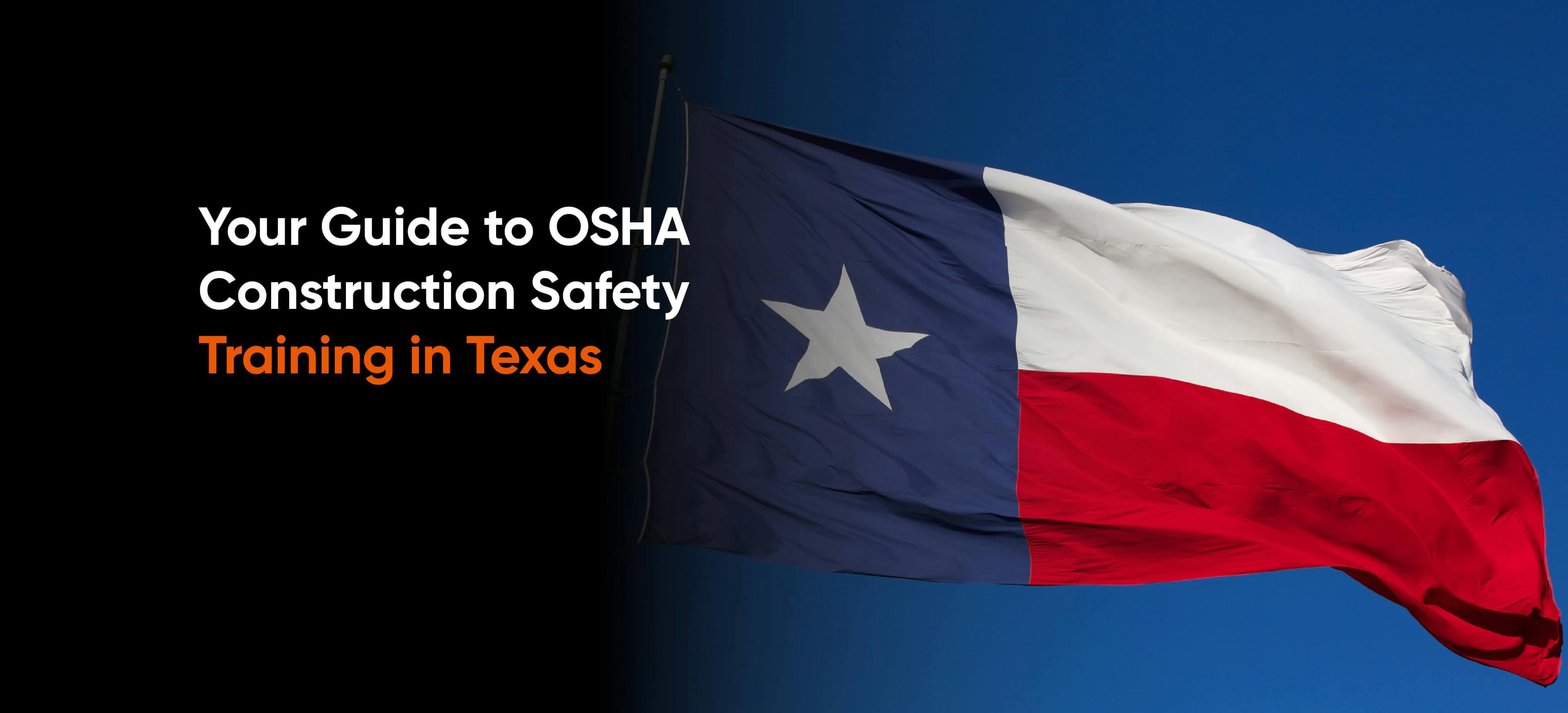Construction safety is crucial in the industry, ensuring workers are protected from hazards on job sites. The Occupational Safety and Health Administration (OSHA) establishes and enforces workplace safety regulations in Texas. This guide offers an overview of OSHA construction safety training in Texas, detailing the requirements and steps involved in obtaining necessary certifications.

Understanding OSHA and its Role in Construction Safety
OSHA is a federal agency founded in 1970 to guarantee the safety and wellbeing of employees across the United States. The agency sets and enforces standards, provides training, and offers outreach and education programs to reduce workplace injuries, illnesses, and fatalities.
In Texas, OSHA operates under the jurisdiction of the U.S. Department of Labor, collaborating with the Texas Department of Insurance, and Division of Workers' Compensation, to promote safety and health in the workplace. In addition, they work together to provide resources and support for employers and employees in the construction industry.
Importance of OSHA Construction Safety Training
Construction safety training is essential for a variety of reasons, including:
- Compliance with regulations: OSHA construction safety training helps companies and workers comply with federal and state safety regulations, ensuring a safe working environment.
- Injury and illness prevention: Proper safety training can significantly reduce the risk of workplace accidents and illnesses, promoting a healthier workforce and reducing costs associated with injuries and lost productivity.
- Enhanced productivity: A safe and healthy workplace is more efficient, as workers can focus on tasks without worrying about potential hazards.
- Reputation and customer trust: Companies prioritizing safety and health in the workplace are more likely to be viewed as responsible and trustworthy by clients and partners.
OSHA Construction Safety Training Requirements
OSHA construction safety training requirements vary depending on the job role and responsibilities. However, the most common training courses include:
- OSHA 10-Hour Construction Training: This course is designed for entry-level construction workers and covers basic safety and health hazards found on construction sites. Topics include fall protection, personal protective equipment, scaffolding, and more.
- OSHA 30-Hour Construction Training: This course is intended for construction supervisors, managers, and others with safety responsibilities. The 30-hour training covers various topics, including hazard recognition, prevention, control, and regulatory compliance.
- Additional training courses: Depending on the job requirements, workers may need to complete different specialized training courses, such as hazard communication, confined space entry, or fall protection.

Steps to Obtain OSHA Construction Safety Training in Texas
- Determine the required training: Identify the specific OSHA construction safety training courses necessary for your job role and responsibilities.
- Choose a training provider: Select a reputable training provider authorized by OSHA to deliver construction safety courses in Texas. Providers may offer in-person or online training options.
- Register for the course: Enroll in the appropriate OSHA construction safety training course and pay any associated fees.
- Complete the course: Attend and actively participate in the training, ensuring you understand the material covered.
- Receive your certification: Upon completing the course, you will receive an OSHA completion card as proof of your training. The OSHA 10-Hour card is typically valid for five years, while the 30-Hour card has no expiration date.
Maintaining and Updating Your OSHA Construction Safety Training
Continuing education and training are crucial in maintaining a safe and healthy workplace. To stay up-to-date with the latest OSHA requirements and industry best practices, consider the following:
- OSHA Outreach Training Program: This voluntary program offers additional training courses to help workers expand their knowledge and skills.
- Industry-specific training: Attend seminars, conferences, and workshops on construction safety and health topics relevant to your job role and responsibilities.
- Retake courses as needed: If your OSHA 10-Hour card expires, retake the course to maintain compliance with OSHA regulations. Additionally, it's a good idea to retake the OSHA 30-Hour course periodically to ensure your knowledge is current.
- Stay informed on OSHA updates: Regularly check the OSHA website and subscribe to their newsletters or email updates to stay knowledgeable about any changes to regulations, guidelines, or training requirements.
- Collaborate with colleagues and industry professionals: Join industry associations, participate in online forums, and network with other construction professionals to exchange information and share best practices in construction safety.
- Implement and maintain a safety program: Encourage your employer to establish a comprehensive safety program that addresses potential hazards, provides ongoing training, and promotes a culture of safety in the workplace.
- Encourage employer support: Advocate for your employer to invest in construction safety training for all employees, emphasizing the long-term benefits for the company, including reduced injuries, lower insurance premiums, and increased productivity.

Conclusion
OSHA construction safety training is a vital component of workplace safety in Texas. Ensuring workers receive the proper training helps prevent accidents and injuries and fosters a culture of safety, which benefits both employees and employers. In addition, construction professionals can contribute to a safer and more productive industry by staying informed about OSHA requirements, participating in continuing education, and promoting workplace safety.

